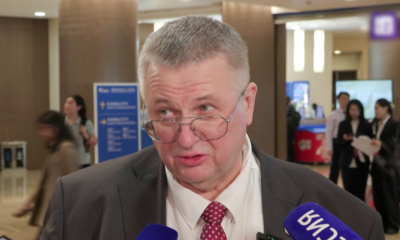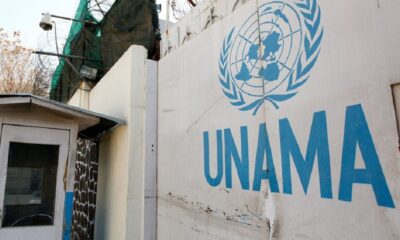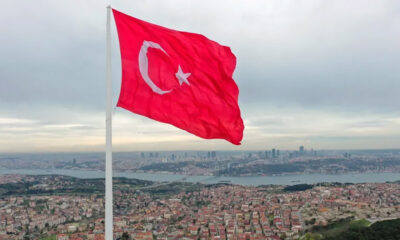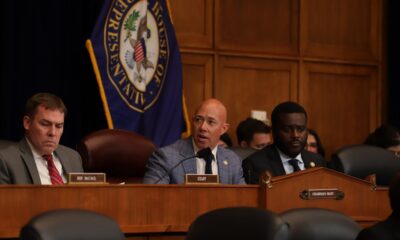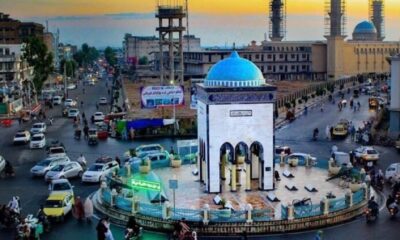Latest News
Aid agency chief: IEA says guidelines on female NGO staff resuming work close to finalization
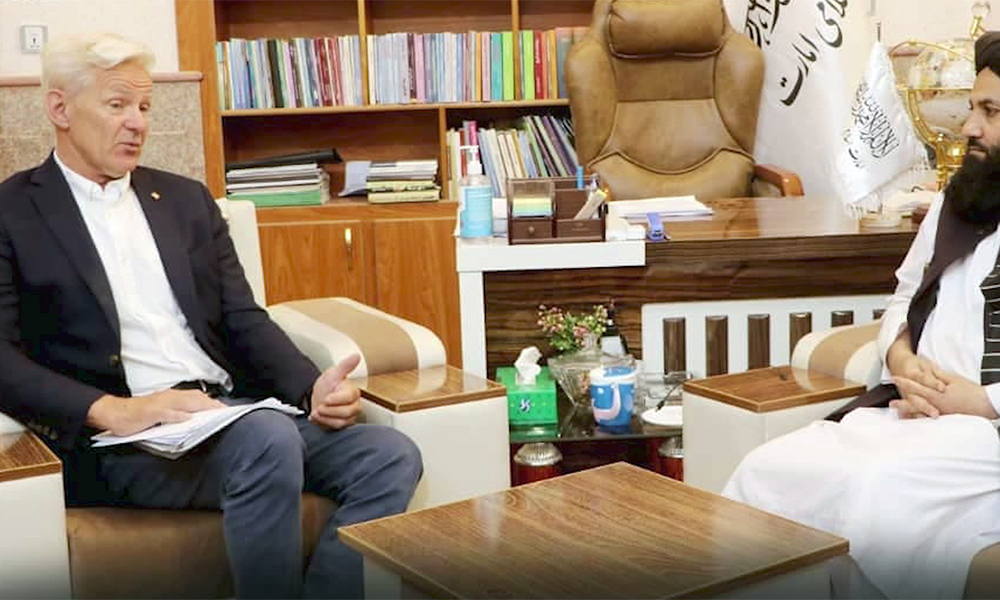
The head of a major international aid agency said Tuesday that key Islamic Emirate of Afghanistan officials told him in meetings that they are close to finalizing guidelines that will allow Afghan women to resume working for nongovernmental organizations.
But they were unable to give a timeline or details when pressed, he said.
The IEA last December barred Afghan women from working at NGOs, allegedly because they were not wearing the hijab correctly and were not observing gender segregation rules.
In April, they said this ban extended to U.N. offices and agencies in Afghanistan. There are exemptions in some sectors like health care and education, AP reported.
Days before the NGO order came into effect, the IEA barred women from universities, having already stopped girls from going to school beyond sixth grade. Last November, women were banned from public spaces, including parks.
In January, the IEA said they were working on guidelines for women to return to work at NGOs. They previously said they were working on guidelines so that girls and young women could return to education but these have yet to materialize.
Jan Egeland, the secretary-general of the Norwegian Refugee Council, is visiting Afghanistan for the second time in five months to persuade the country’s IEA rulers to reverse the ban on the organization’s female staff.
Egeland met the Kandahar deputy governor, Maulvi Hayatullah Mubarak, who he described as having “direct contact with and links” to the IEA’s supreme leader Hibatullah Akhundzada, who ordered the education and NGO bans. He also met the head of Kandahar’s Economy Directorate, Mawlawi Abdul Salam Baryali.
“The authorities in Kandahar have a special position since the emir (Akhundzada) sits in Kandahar,” he told The Associated Press. “Whatever agreement we can get in Kandahar can have a national impact. These guidelines are close to being finalized and should soon be put into effect, that is what was conveyed.”
Egeland said he pressed the officials for a timeline and clarity on the word “soon” but they didn’t elaborate.
He was told the IEA couldn’t guarantee anything as everything needed to be put to the supreme leadership. They also told him they had been working on the NGO matter for months and that most issues have been resolved.
The guidelines are likely to cover dress codes, gender segregation in the workplace, and a chaperone for travel. Egeland warned that it would not be a lifting of the ban if the guidelines went beyond that.
The Norwegian Refugee Council stands to lose 40% of its funding for Afghanistan because of the bans on female employment and education, he said.
He said the potential loss meant a 40% drop in the number of people reached.
The agency has also laid off 220 of its 1,500 workforce and closed five offices. But it retains male and female Afghan staff who are unable to work because of the bans. The agency is not deploying male-only teams.
“I believe their promises,” he said of the IEA. “But I can only accept the facts.”
Abdul Rahman Habib, a spokesman for the Economy Ministry, said it was too early to talk about the NGO guidelines.
“If it comes from another source we are not responsible for it,” he said. “We are the only source for confirmation. When the time is right we will announce it officially.”
The IEA have repeatedly told senior humanitarian officials visiting Afghanistan since December that the NGO restrictions are temporary suspensions, not a ban.
Latest News
Russia’s Deputy PM says IEA has a positive view of Moscow
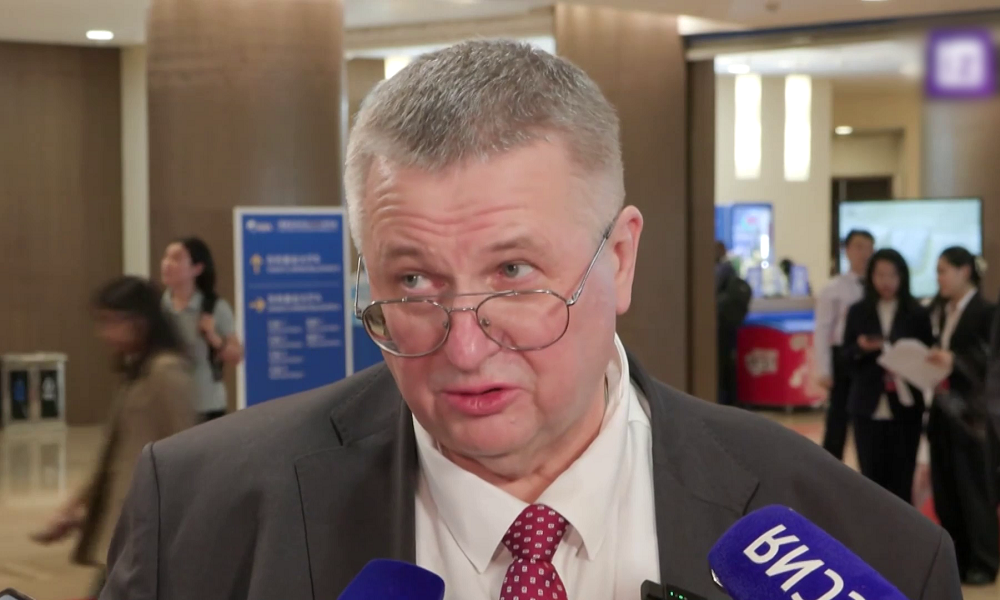
Russian Deputy Prime Minister, Alexei Overchuk, says the Islamic Emirate holds a positive view of Russia and despite existing challenges, Moscow sees an opportunity for deeper engagement with Kabul.
Speaking to Izvestia newspaper, Overchuk said Afghanistan’s rulers are very interested in developing economic relations with Russia. He also said that removing the Islamic Emirate from Russia’s list of banned organizations would provide an opportunity to tap into Afghanistan’s economic potential.
“Afghanistan has many problems, but it also has potential that is waiting for us. We’ve been in contact with the Afghans. They want development and to live in peace. They have a positive attitude toward Russia and a strong interest in developing economic relations.
“Furthermore, if a decision is made to suspend the Taliban’s (Islamic Emirate) designation as a banned organization, better opportunities for relations with this country will open up,” he said.
Overchuk emphasized that Russia’s Prosecutor General’s Office is currently pursuing the removal of IEA from the country’s list of banned organizations.
The IEA has in the past welcomed progress in improving diplomatic relations with Russia and had expressed a desire for closer ties.
Russia’s envoy for Afghanistan, Zamir Kabulov, has also said Moscow intends to form a joint Russia-Afghanistan working group in the spring of 2025.
Latest News
IEA focused on implementing ‘pure Islamic system’ nationwide, UNAMA says
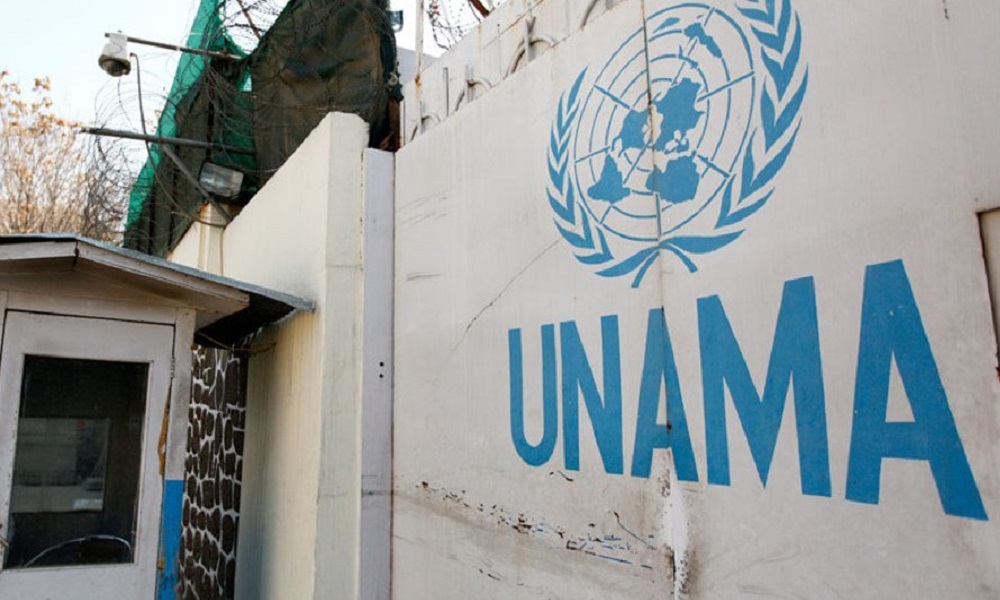
The UN in Afghanistan (UNAMA) on Thursday released a report on the impact, implementation and enforcement of the Islamic Emirate of Afghanistan’s (IEA) law on the propagation of virtue and prevention of vice (PVPV law) and found there to be a determination by IEA authorities to ensure their vision of a pure Islamic system is implemented nationwide.
The report covers the six-month period since the law’s promulgation in August last year. UNAMA stated it had “observed overall more systematic and consistent efforts in the de facto authorities’ enforcement of the PVPV law led by the de facto Ministry of the Propagation of Virtue and Prevention of Vice and Hearing of Complaints compared to the de facto authorities’ enforcement of earlier decrees.”
UNAMA noted that these efforts include the establishment of implementation committees in 28 of Afghanistan’s 34 provinces, and the deployment of about 3,300 PVPV inspectors with broad discretionary powers.
According to the report, UNAMA also observed far-reaching socio-economic impacts on Afghan men and women, “including increased restrictions on Afghans’ personal and private spaces and on women and girls’ access to public spaces and healthcare, dress code, and travel.
The report stated that the direct and indirect socio-economic effects of the law’s implementation are likely to compound Afghanistan’s dire economic and humanitarian situation, including on the ability of UN agencies and international NGOs to deliver humanitarian and basic human needs assistance to millions of people across Afghanistan.
In response to this report, however, the Ministry for Promoting Virtue and Preventing Vice has stated that it has helped thousands of women to secure their rights and has saved them from forced marriages in all provinces.
The ministry added that it has prevented abuses to eliminate undesirable customs and traditions in the country.
According to the ministry, a number of unknown groups, to achieve their malicious goals, have ignored all these achievements and seek to confuse public opinion.
This comes after the UN Security Council stated in a resolution on Afghanistan in December last year that it was seriously concerned “about the increasing erosion of respect for human rights and fundamental freedoms, in particular for women and girls and their lack of equal access to education, employment, justice, economic opportunities, full, equal and meaningful participation in public life, freedom of movement, and enjoyment of basic services – the absence of which make peace, stability, and prosperity in the country unattainable.”
The UNSC reiterated “its call for the Taliban (IEA) to swiftly reverse these policies and practices, including the “vice and virtue” directive”.
Latest News
Donor community meet in Turkey to ‘plan and coordinate’ aid to Afghanistan
In 2024, humanitarian and basic human needs partners raised a collective US$3.21 billion in support of the Afghan people, exceeding funding levels of the previous year.

The Turkish Embassy in Kabul has confirmed that a two-day Afghanistan Coordination Group (ACG) Meeting is being held in Istanbul where the international donor community will look at priorities and plans around the situation in Afghanistan.
In a post on X, the embassy said the meeting would be held on Wednesday and Thursday and that it was important for the donor community to coordinate activities.
This comes just two days after the United Nations in Afghanistan (UNAMA) called on the international donor community to maintain critical support for the Afghan people, 22.9 million of whom are in need of assistance in 2025.
“If we want to help the Afghan people escape the vicious cycle of poverty and suffering, we must continue to have the means to address urgent needs while simultaneously laying the groundwork for long-term resilience and stability,” said Indrika Ratwatte, the UN’s Resident and Humanitarian Coordinator and Deputy Special Representative of the Secretary-General in Afghanistan.
“Despite complex challenges in delivering assistance to the Afghan people, we must continue to make the gradual transition from life-saving assistance to sustainable solutions that address the root causes of vulnerability. This is critical for Afghanistan, the region, and the world.”
In 2024, humanitarian and basic human needs partners raised a collective US$3.21 billion in support of the Afghan people, exceeding funding levels of the previous year.
-
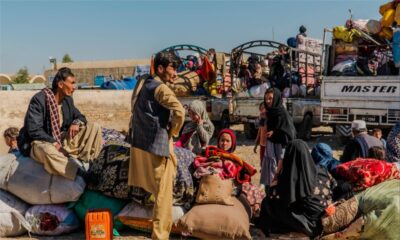
 Latest News4 days ago
Latest News4 days agoUN rights experts call on Pakistan to stop removal process of Afghan refugees
-
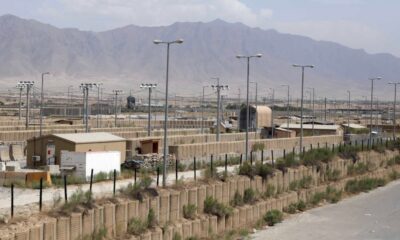
 Latest News3 days ago
Latest News3 days agoIEA rejects reports of US military planes landing at Afghanistan’s Bagram Air Base
-

 Science & Technology5 days ago
Science & Technology5 days agoMeta releases new AI model Llama 4
-
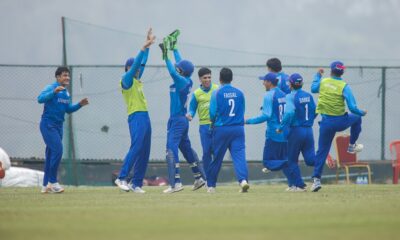
 Sport4 days ago
Sport4 days agoAfghanistan Under-19s beat Nepal by 1 run in second ODI, win series
-

 World5 days ago
World5 days agoAnti-Trump protesters gather in Washington, other US cities
-

 Regional4 days ago
Regional4 days agoRains add to challenge for Myanmar quake relief, toll at 3,471
-
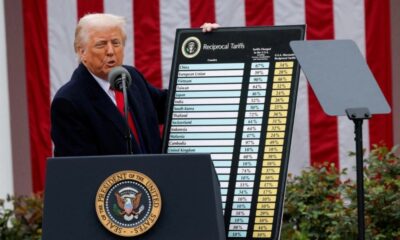
 Latest News3 days ago
Latest News3 days agoTrump’s tariff pressure on Afghanistan ‘will impact economic growth’
-
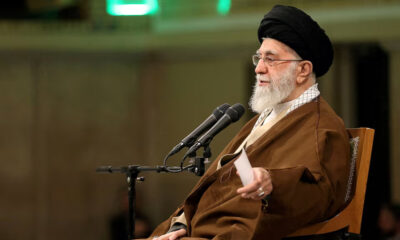
 Regional4 days ago
Regional4 days agoIran wants indirect talks with US, warns regional countries over strikes against it


